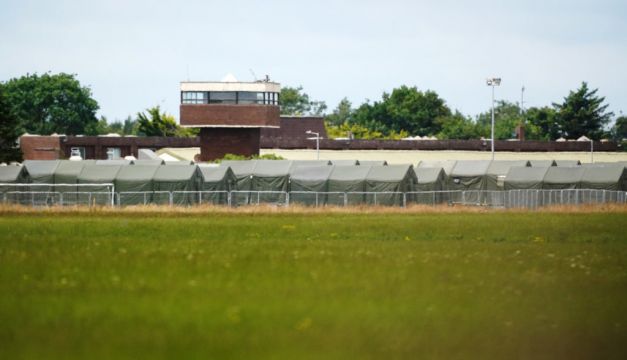There is a “huge risk” of an outbreak of an infectious disease such as Covid-19, TB or measles among refugees arriving in Ireland, a public health doctor has warned.
Dr Douglas Hamilton, chair of the Irish Society of Specialists in Public Health Medicine, called on the Government to activate national emergency management coordination structures to respond to the number of refugees arriving in the country.
He told RTÉ radio’s Today show that while public health doctors were proud of how Ireland had accepted so many people displaced by the war in Ukraine and the swift response of the HSE to provide services, they felt this was a crisis situation which required emergency management.
“We feel that there is a crisis at the moment, a real crisis, and we feel it is now time to activate a national cross-government emergency management to coordinate a response with clear governance, seamless information sharing between government departments and services etc,” he said.
One of their main concerns was the risk of infectious diseases outbreaks, he said. “With emergency accommodation in general, especially in congregated settings, it's very challenging to prevent and control outbreaks.
“Not only of Covid, but for example TB, measles, that has essentially been eliminated from Ireland currently, there’s a huge risk of this.”
Dr Hamilton pointed out that there was no case management system in place for outbreaks and no national immunisation information system for the people arriving, some of whom could be coming from “very fractured backgrounds” with fragmented services.
“So the childhood vaccination programmes would be very weak, and a Covid vaccination programme might have been very weak and fractured so they come here unprotected essentially - through no fault of their own,” he said.
Overstretched
Dr Hamilton said that there was already a housing crisis and overstretched health services with long waiting lists and “trolley issues”. There were now 500 asylum seekers per week, compared to 50 a week a year ago.
Refugees arriving from war-torn countries could have complex emotional, physical and mental needs while public health services were already overstretched, he warned.
“We already have stresses on our system, then we have these people with extremely complex needs then joining the list, the queues for these services.
“If somebody is acutely traumatised and they are placed in a tent... we have to make sure they have the security that they require, the space, the food, water, the ventilation that's required and isolation facilities. We're talking about highly infectious diseases.
“If they don't have isolation capacity, it's a big problem.”
There were broader wellbeing issues that needed to be addressed in a crisis situation like this which required coordinated responses, he said. “Childcare, schooling, housing, employment - all this is being overwhelmed at the moment. That to us is a crisis for society. The services need to be properly coordinated.
“There needs to be clear governance. There needs to be a lead agency with clear governance as to who does what, where and when. There needs to be seamless information sharing between government departments and services to ensure that all these people get what they need to become part of our community and society and that needs a cross-government response and we suggest learning from Covid and how well that worked.”







